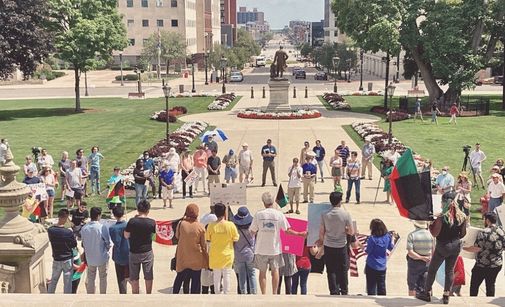Refugee 101
Belonging
“I want to go home, but home is the mouth of a shark home is the barrel of the gun and no one would leave home unless home chased you to the shore unless home tells you to leave what you could not behind, even if it was human.”
–Warsan Shire, Poet
All people deserve to belong.
Who is a refugee?
Refugees are men, women and children fleeing war, persecution and political upheaval who have crossed borders to seek safety in another country. Most eventually go home when it’s safe, some stay in temporary refugee settlements, and a tiny fraction resettle in a third country, such as the United States.
Who is an asylee?
Like a refugee, an asylee is also a person who has left his/her country and is afraid to go home due to a well-founded fear of persecution having to do with his/her race, religion, nationality, or membership in a particular social or political group. Unlike refugees, who receive this immigration status from the State Department prior to their arrival in the U.S., individuals seeking asylum apply and are granted this status when they have already in the U.S.
Where do refugees go?
85 percent of the world’s refugees displaced abroad are hosted by low- or middle-income countries. Turkey has taken in 3.6 million refugees, more than any other country, followed by Colombia, Pakistan, Uganda and Germany, each with over 1 million people.
What happens after a person becomes a refugee?
Many refugees are able to return home at the end of a conflict or period of instability. Some refugees, however, are forced to remain in refugee resettlements if their home country remains unstable or if they have a well-founded fear of persecution. Refugees sometimes have the opportunity to build new lives in the countries where they seek asylum. A very small percentage of the world’s refugees are resettled in a third country, like the United States of America. U.S. Resettlement can be a slow process; many refugees spend up to 20 years waiting to be resettled.
Who pays for a refugee to travel?
Refugees must repay all travel loans soon after arrival in the United States.
Do refugees choose their resettlement city?
Refugees do not choose their resettlement city. Unless there is a family member they are reunifying with, refugees are subject to the process of resettlement on the national level and have little choice where they are initially settled.
Are refugees legally allowed to be in the US?
Refugees who come to the United States go through a lengthy process of background checks and waiting. They are invited by the State Department and are legal residents on the ultimate pathway to citizenship. They must wait one year to obtain a green card and five years to apply for citizenship.
Why Welcome?
“Give me your tired, your poor, Your huddled masses yearning to breathe free, The wretched refuse of your teeming shore. Send these, the homeless, tempest-tost to me, I lift my lamp beside the golden door!"
–Words printed on the Statue of Liberty, Emma Lazarus November 2, 1883
Resettlement in the United States and Michigan
Since 1975, the U.S. has welcomed more than three million refugees from all over the world, and these refugees have built new lives for their families in all 50 states. Lansing has been part of this welcoming journey since the beginning and has resettled an estimated 20,000 refugees over the last four and a half decades. When we welcome refugees, they change our lives and communities for the better. The U.S. resettles the most vulnerable refugees and has been the world's resettlement leader for decades.
Refugees and their families have woven themselves into the fabric of American society. They are our neighbors, our friends and our colleagues. They are teachers, business owners and contribute positively to communities across the country.
Refugees play a vital role in Michigan’s growth — economically, socially and culturally — helping make our state strong and prosperous. Refugee Newcomers are business owners, homeowners, taxpayers, students, teachers and neighbors. We are honored to support our new neighbors as they become rooted and feel a sense of belonging in the community.

